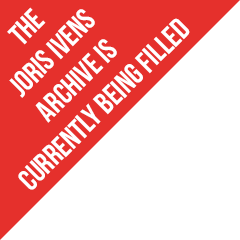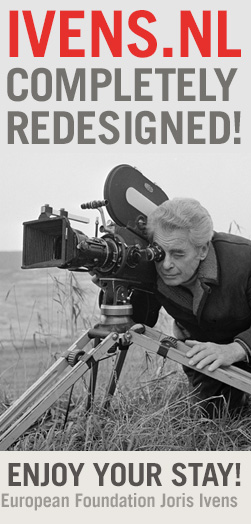

Name curator: Paul Douglas Grant
Name artist: Nick Deocampo
Title of the work you have chosen: Oliver
Year of production: 1983
Format: Super 8
Down here, you can read the interview with the curator of this film, Paul Douglas Grant:
About the curator
Name: Paul Douglas Grant
Function: Professor of Cinema Studies at the University of San Carlos, Cebu, Philippines
What is your main interest: National, regional and minor cinemas.
Where do you come from/ where do you live: From the States, live in the Philippines
About the film and the filmmakers:
Oliver was released in 1983, shot on super-8 and addressed and represented head on the kind of culture that the Marcoses, particularly Imelda, sought to secret away in Philippine culture and society. Nick Deocampo is both a filmmaker and film historian/scholar. He has chronicled the history of Philippine cinema in a series of thick volumes that rival Sadoul and Mitry. Each of the volumes also has an accompanying film that serves as a pedagogical tool for transmitting the history of cinema in the Philippines. Deocampo tours the country presenting seminars on film literacy and championing local cinemas in the Philippines.
What can you tell about this film?
Oliver is a medium-length documentary shot on Super-8, and follows the film's eponymous protagonist who works as a female impersonator. Working in gay bars in Manila, 24 year-old Oliver, the stage name of Reynaldo Villarama, struggles to make money to support his child, his grandmother and his siblings who he lives with in the Tondo region of Manila. Tondo, a region of Northern Manila, is known primarily for its slums, and was, during the time of Oliver, still home to the infamous Smokey Mountain garbage dump. While Oliver makes money impersonating Liza Minnelli or Grace Jones singing Do or Die in nightclubs, his peers and neighbors scavenge in the dumpsite. This film progresses from interviews with his siblings, his elderly and supine grandmother, and other friends and relatives describing they're understanding of Oliver's work and their understanding of their position in Philippine society. The film ends with Oliver's most provocative performance, that of Spiderman. The Spiderman performance has Oliver pulling string from his anus slowly creating a web around himself that is hard not to interpret as the prison of Marcos's marginalization of the population of the film.
How does this film relate to the theme "politics and poetry" in your opinion?
Oliver would be very difficult to watch through any other rubric than that of poetry and politics: these twin powers are the hard kernel of vitality from which the film springs. The film is, notably, produced at the critical juncture of 1983, the year of Aquino's assassination, and the emergence of the people power revolution. From this politico-historical quilting point there is a constant dialectical interplay of the emic and the etic in this film that constitutes the capacity to represent poetry politically. The interviews with the participants, apart from those with Oliver, carry the weight of an outside observer seeking a description of the living conditions of the inhabitants of Tondo. These sequences suggests something close to an analytical disinterestedness providing a vantage point for the spectator to engage the film in its critical approach to the abuse of power, the marginalization of the Philippine lower-working and lumpen classes as well as the resistance that emerges within in these margins.
But there is then the turning towards the emic, and that is within the sequences of Oliver's performances and his position within Marcos's Philippines as a FilipinX. It is here that the poetry comes to the fore, in the discussion, in the representation and more affectively in the image itself. For, instance Oliver's glowing body as he performs a Grace Jones song in gold body paint. There is a startling rebellion in this sequence, the gestures of this androgynous golden figure as it mimes the liberty of expression of the Jamaican pop star. And of course the massive concluding performance of Spiderman, as Oliver pulls out string tucked into his anus to construct a webbed prison around his nearly naked body. These sequences are the ones in which we feel the filmmaker is recounting his own story, not as a performer or sex worker, but as a marginalized member of the Philippine society that the Marcoses worked so hard to project.
The medium itself should also be taken into consideration. Deocampo was a strong advocate of the short film and super-8 stock. These elements, while perhaps too late chronologically to be constitutive of third cinema, allegorize the narrative of the film as well. It is a medium on a budget, and the color quality, the audio, the pulsing of light that the small format has trouble controlling all work together to support the material being shot. Thus it is amongst the cinéma vérité-like interviews, the avant-garde poetry of the performance and the small-format film stock that we are able to locate the oscillations of politics and poetry.
Are politics and poetry (or politics and arts) two separate worlds according to you? Why / why not?
Yes, but they collude, collaborate and conspire everywhere we turn.
There are a lot of political tensions and changes in the world right now. Do you (already) notice any changes in the focus and/or ideas and work of artists because of these developments? Do you have examples?
Since this question was posed the world has taken an even sharper turn towards indigenization, nationalism and populism in the service of the hard right. My sense is that it will take a moment to figure out how this kind of situation is being reflected in contemporary artistic practices. I suspect we will begin again at the didactic and or pedagogic and then build the new reflections from there.
Besides the theme of "Politics and poetry" are there any other comparisons between this artist and Ivens according to you?
It is there somewhere and I suspect it hinges on a relationship with Jean Rouch, as Deocampo was a student of Rouch's in Paris in the 1980s.
